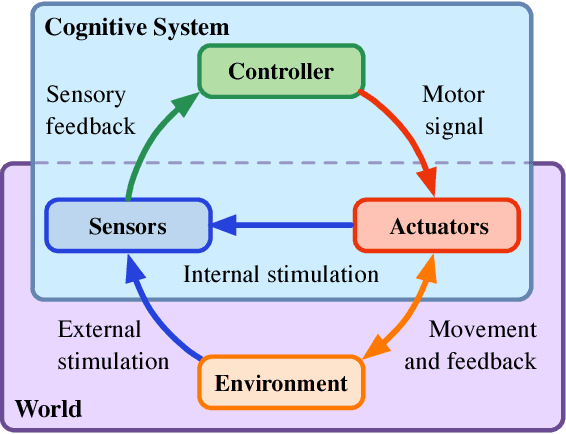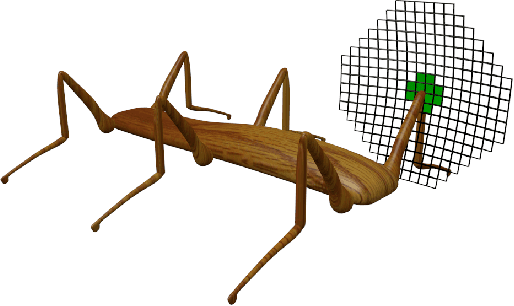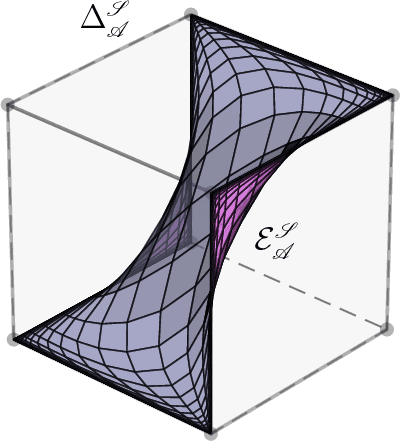A Theory of Cheap Control in Embodied Systems
Paper and Code
Nov 15, 2014



We present a framework for designing cheap control architectures for embodied agents. Our derivation is guided by the classical problem of universal approximation, whereby we explore the possibility of exploiting the agent's embodiment for a new and more efficient universal approximation of behaviors generated by sensorimotor control. This embodied universal approximation is compared with the classical non-embodied universal approximation. To exemplify our approach, we present a detailed quantitative case study for policy models defined in terms of conditional restricted Boltzmann machines. In contrast to non-embodied universal approximation, which requires an exponential number of parameters, in the embodied setting we are able to generate all possible behaviors with a drastically smaller model, thus obtaining cheap universal approximation. We test and corroborate the theory experimentally with a six-legged walking machine. The experiments show that the sufficient controller complexity predicted by our theory is tight, which means that the theory has direct practical implications. Keywords: cheap design, embodiment, sensorimotor loop, universal approximation, conditional restricted Boltzmann machine
 Add to Chrome
Add to Chrome Add to Firefox
Add to Firefox Add to Edge
Add to Edge